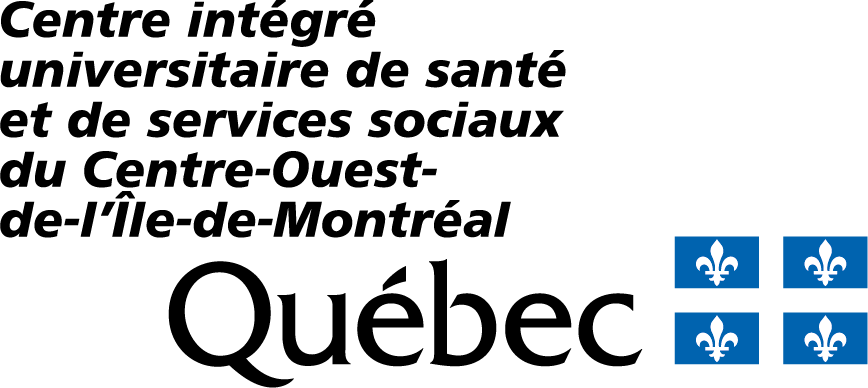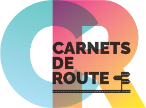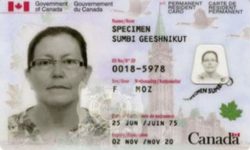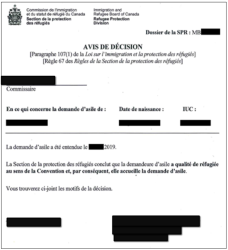The content of Carnets de route was updated in November 2023, unless otherwise indicated. Some elements may have changed since then. If in doubt, consult the sources and resources in this section. You can also report any information requiring change through Technical Support. Update dates may vary by section.
Carnets de route contains information specifically aimed at refugees and refugee claimants, as well as the people assisting them. Carnets de route is intended to help you with the process of settling in when you arrive and during your first few years in Québec.
With Carnets de route, you will enjoy an engaging experience: reliable, organized and accessible information about Québec society, steps to take, to-do lists, timelines, summary diagrams and much more!
Select whether you would like to view the website in English or French, then answer the following three questions to be directed to the right information.

Your profile
Refugee Claims
Accepted Refugee Claims
Refused Refugee Claims
Refugees
2SLGBTQIA+ People
Updates – 2SLGBTQIA+ People
1. Confidentiality
For sources related to the contents of this page, see the complete bibliography.
In Québec, personal information is kept confidential. This means that the people at the organizations you interact with cannot share any information you give them (including your sexual identity) unless they have your permission to do so.
2. Discrimination
In Québec, discriminating against someone because of their sexual identity is against the law. Don’t hesitate to file a complaint if you experience discrimination for this reason. This will have no impact on your immigration status.
3. Change of sex/gender identifier
As soon as you arrive:
You can apply to change your sex/gender identifier and name with IRCCImmigration, Refugees and Citizenship Canada .
After one year in Québec:
You can apply to change your sex/gender identifier with the Directeur de l’état civil. You can apply to change your first name at the same time.
If you do not have access to your birth certificate, contact AGIR Montréal for assistance.
To change your sex/gender identifier with IRCCImmigration, Refugees and Citizenship Canada and the Government of Québec, you DO NOT need to:
- Be a permanent resident
- Provide proof of your sexual identity
- Have had gender-affirming surgeries
For more details about the steps to follow with IRCCImmigration, Refugees and Citizenship Canada and the Directeur de l’état civil, see the Rights and Protections section of the Carnets de route website.
4. Change of name
To apply to change your name with IRCCImmigration, Refugees and Citizenship Canada , ask AGIR Montréal for help to learn about the process.
After one year in Québec, you can submit a name change request to the Directeur de l’état civil. If you apply to the Directeur de l’état civil to change your sex/gender identifier, you will be able to change your first name but not your last name.
For more details about the steps to follow with the Directeur de l’état civil, see the Rights and Protections section of the Carnets de route website.
5. Unions and couples
In Québec, two people of the same sex/gender can marry, enter into a civil union or become common-law spouses after living together for one year. See the Rights and Protections section of the Carnets de route website to learn the differences between these types of union.
If you have a spouse of the same sex/gender who has remained in your country of origin:
- It is important to declare this person as your spouse on your forms.
- If you are unable to live with your spouse because this would put you at risk of persecution in your own country, you can still apply for family reunification and other procedures for this person. The eligibility criterion of having lived with your spouse does not apply in this situation.
Same-sex/same-gender couples can also have and raise children in the same way as other families.
6. Health
6.1 Medical resources
You can consult a CLSCLocal community service centre to receive care and services and to be referred to organizations for 2SLGBTQIATwo-spirit, lesbian, gay, bisexual, trans, queer, intersex, asexual and additional sexual orientations and gender identities + people.
Finding a CLSCLocal community service centre – Government of Québec
6.2 Hormones and surgeries
You can get access to hormones and sex-/gender-affirming surgeries. However, the process is complex.
The RAMQRégie de l’assurance maladie du Québec covers the costs of some hormones and surgeries. The IFHPInterim Federal Health Program covers the cost of some hormones, but not surgery.
If you would like more information about access to hormones and gender-affirming surgeries, contact AGIR Montréal.
AGIR Montréal
Multilingual – Support for LGBTQIA+ migrants
7. Key resources
AGIR Montréal
Multilingual – Support for LGBTQIA+ migrants
Interligne
Helpline specifically for 2LGBTQIA+ people – Available anytime by phone, text, email and chat
LGBTQ+ Compass – Montréal LGBTQ+ Community Centre
2SLGBTQIATwo-spirit, lesbian, gay, bisexual, trans, queer, intersex, asexual and additional sexual orientations and gender identities + – Multilingual – Discussion groups, workshops.


